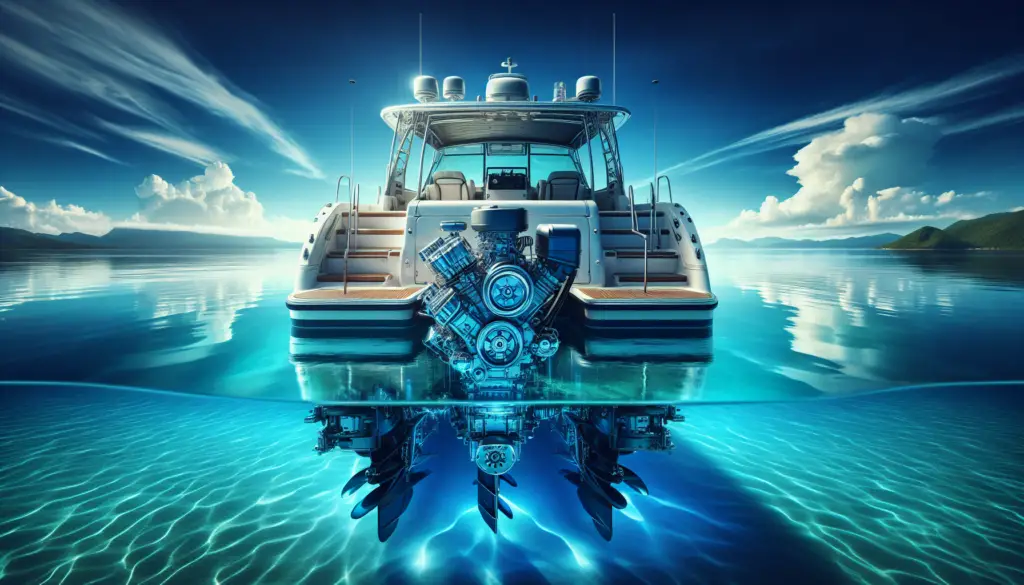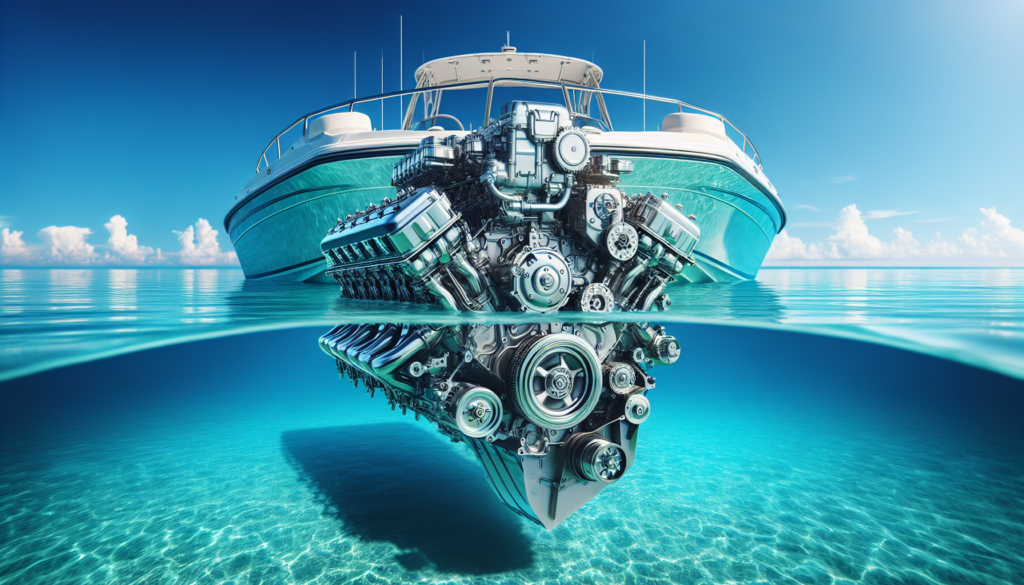You are about to embark on a journey to discover how to keep your boat’s engine running smoothly for recreational boating. “Essential Tips For Keeping Your Boat Engine In Top Condition For Recreational Boating” is the guide you need to ensure your boat remains your trustworthy companion on the water. Prepare to learn insider secrets about regular maintenance, essential checks, quick fixes, and much more which will provide you the confidence and know-how to keep your boat engine in the best possible condition. Embark on this informative journey, and let the calm waters of knowledge guide you to becoming your boat’s best mechanic!

Understanding the Importance of Boat Engine Maintenance
Imagine setting out for a serene day on the water, only to have your boat’s engine fail. You wouldn’t want to be stranded in the middle of the lake, would you? This is why understanding the importance of boat engine maintenance is crucial to every boat owner.
Dealing with Unexpected Breakdowns
A well-maintained boat engine minimizes the odds of unexpected breakdowns. Taking care of your boat’s engine will not only save you from stress but also help you avoid potential rescue costs and expensive repairs.
Extending the Life of the Boat Engine
Good maintenance can extend the life of your boat engine significantly. Similar to automobiles, a well-cared-for boat engine can last for many years, even beyond the manufacturer’s initial lifespan estimates. Regular maintenance can detect minor issues before they become big problems, thereby ensuring you get the best out of your investment.
Dangers of a Poorly Maintained Engine
A poorly maintained engine can be a ticking time bomb. It increases the chance of breakdowns, accelerates wear and tear, and can even lead to severe accidents. It could cause leaks, fires, or even explosions. safety should always be paramount, and a well-maintained engine reduces the risk of such accidents.
Familiarize Yourself with Your Boat Engine
Your journey to appropriate boat maintenance begins with understanding your boat engine.
Knowing the Parts of Your Boat Engine
Every boat owner should be familiar with the primary parts of their boat engine, such as the oil filter, cooling system, propeller, and fuel filter. This will enable you to identify and troubleshoot any potential issues that may arise with your boat’s engine before seeking professional servicing.
Understanding the Function of Each Part
In addition to recognizing the different parts, understanding their function is also crucial. This knowledge will help you to identify any signs of damage or failure.
Reading and Understanding the Engine’s Manual
Your boat engine’s manual is a treasure trove of information. It guides you through the maintenance schedule, operation protocols, potential problems, and their solutions. Understanding this manual is an essential step in ensuring your boat engine’s longevity.
Regularly Check and Replace Engine Oil
Your boat engine’s oil is its lifeblood. Here’s why the right oil matters.
Importance of the Right Oil
Choosing the correct oil for your boat engine can boost its performance and longevity. Oils lubricate the metallic components of the engine, reducing friction and the resulting heat.
Frequency of Oil Change
Ensure you refer to your engine’s manual for guidance on how frequently to change the oil. Mostly, the oil should be changed before storing the boat for the winter and at least once during the boating season.
Monitoring Oil Levels
Consistently checking on your boat’s oil levels is of paramount importance. Low oil levels can cause the engine to seize, leading to costly repairs.
Choosing the Right Oil for Your Boat Engine
Several brands offer marine engine oil, but choosing the right one depends on your boat engine specifications. Your boat manual will help specify the type of oil required.
Maintain the Cooling System
Cooling systems are a vital part of a boat engine, so maintaining them is crucial.
Identifying Cooling System Issues
If your engine overheats or has an increased requirement for coolant, it could be a sign of a cooling system issue.
Regularly Flushing the System
Regular flushing of the cooling system helps remove any dirt or sediments that may accumulate over time. You should aim to flush the system at least once per boating season.
Inspecting the Water Pump and the Coolant
Regular inspection of the water pump ensures it functions optimally. The coolant should also be assessed for proper levels and to check for any signs of contamination.

Regularly Inspect the Propeller
The propeller’s performance directly impacts your boat’s speed and efficiency.
Identifying Propeller Issues
Common signs of a faulty propeller include vibrations, reduced speed, and difficulty in steering, warranting an immediate check.
Checking for Dents and Other Damages
Regularly inspect your propeller for dents, scratches, and other damages that could hinder its performance.
Ensuring the Boat Propeller Is Securely Fastened
A loose propeller can lead to accidents on the water. Make sure it’s securely attached before each journey.
Everyday Cleaning and Winterizing
Keeping your boat clean and properly winterized ensures it’s ready for the next boating season.
Routine Cleaning Practices
Routinely cleaning your boat prevents buildup from damaging your engine.
Importance of Winterizing
winterizing your boat protects the engine from cracking due to freezing temperatures. It also offers an excellent opportunity to perform comprehensive engine maintenance and servicing.
Step-By-Step Guide to Winterizing Your Boat
This process usually involves flushing and draining the coolant, changing the oil, fogging the engine, and utilizing appropriate additives.
Change Fuel Filters Regularly
For optimal performance, the fuel used in your boat engine needs to be clean.
Understanding The Importance of Clean Fuel
Clean fuel promotes efficient burning, enhancing the engine’s performance and reducing air pollution.
Recognizing Signs of a Clogged Fuel Filter
Signs of a clogged fuel filter could include a loss of engine power or difficulty starting the engine.
Replacing Fuel Filters
The engine’s manual will guide you on the recommended schedule for changing the fuel filters.
Pay Attention to the Bilge Pump and Bilge
Regularly inspect the bilge and the bilge pump – they can determine your safety on the water.
The Role of the Bilge and Bilge Pump
The bilge collects excess water, with the pump removing it from the boat. If they fail, the boat could possibly sink.
Keeping the Bilge Clean
Routine cleaning of the bilge ensures the pump works efficiently and prevents nasty odors from forming.
Maintaining the Bilge Pump
A regular functional check of the bilge pump is essential to avoid any possible issues.
Regular Engine Check-Ups and Professional Servicing
You cannot undermine the importance of regular check-ups and professional servicing of your boat’s engine.
Scheduling Regular Professional Check-Ups
Regular professional check-ups can detect potential issues early on and keep your engine in top condition.
Importance of Professional Servicing
Not all maintenance tasks are DIY. Professional servicing ensures that more complex duties are correctly done.
Choosing a Reliable Marine Mechanic
Always look out for an experienced and certified marine mechanic for your boat servicing needs.
Boat Engine Storage Tips and Tricks
Correctly storing your boat engine will keep it in a good state of readiness.
Safe Boat Engine Storage Practices
To safely store your boat engine, thoroughly clean and inspect it, change the oil, use appropriate additives, discharge the fuel system, and fog the engine.
Long-Term Storage Tips
For long-term storage, consider using a dehumidifier to keep the engine compartment dry and remove the battery to avoid any corrosion.
Protecting Your Boat Engine From Corrosion
use anti-corrosion products to protect your boat engine from rust during storage.
Avoiding Engine Damage During Storage
Regular checks during the storage period will ascertain that no unforeseen issues crop up, causing damage to your engine.
In conclusion, maintaining your boat engine should be a top priority. Not only will this ensure your safety on the water, but it will also improve your boat’s performance and extend the engine’s lifespan, saving you money in the long run.


